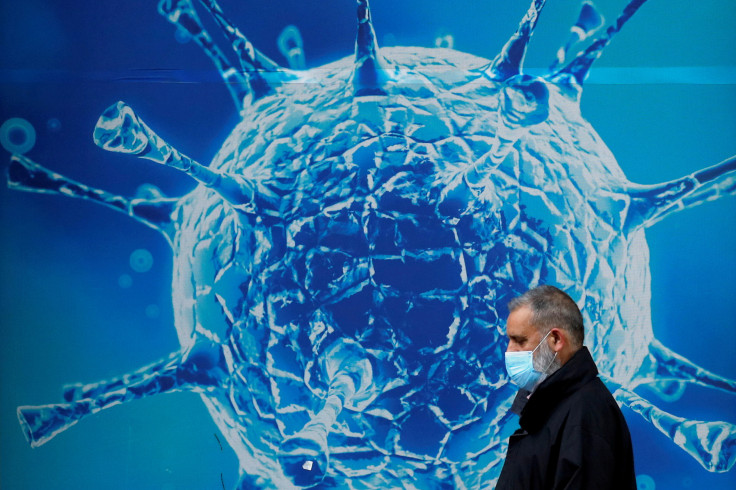New BA.2.86 COVID-19 variant 'Pirola' raises global concerns
In the UK, Pirola has been linked to an outbreak at a care home in Norfolk, where 28 individuals have been infected.

The emergence of a new COVID-19 variant, known as "Pirola" (BA.2.86), has sparked concerns across the globe, with the United Kingdom being one of its latest battlegrounds.
This variant, named after the large asteroid, Pirola, near Jupiter, was first identified in Denmark in late July 2023 and has since spread to multiple countries, including the United States and Canada. Here, we delve into what is known about this emerging variant and its potential implications.
Pirola's Origin and Global Spread
The Pirola variant, BA.2.86, made its initial appearance on the radar when it was detected in Denmark on July 24, 2023, following the sequencing of a patient at risk of severe illness. Since then, it has rapidly traversed international borders, reaching countries such as Israel, the UK, the US, South Africa, Switzerland, Thailand, Australia, Japan and South Korea. However, due to limited genomic surveillance in many regions, there is concern that Pirola may be circulating undetected in other areas.
While Pirola has been spreading across the globe, there have been no reported deaths directly linked to this variant. Nevertheless, the rapid transmission rate and numerous mutations present in Pirola have raised significant concerns among health authorities and researchers.
Pirola stands out due to its substantial number of mutations, estimated to be at least 30. The World Health Organisation (WHO) has classified it as a variant under monitoring due to its unique genetic makeup. However, since it has not been tracked for an extended period, it remains unclear whether Pirola is outcompeting other variants or what specific impact its mutations may have.
One key concern among scientists is that the numerous mutations in Pirola could potentially challenge the human immune system's ability to recognise and mount an effective response against the variant.
According to Eric Topol, Professor of Molecular Medicine and Director of the Scripps Research Translational Institute: "The levels of neutralising antibodies are bound to be much lower against BA.2.86 than versions of the virus we have previously been exposed to or immunised against."
The U.S. Centres for Disease Control has also raised the possibility that Pirola may be more adept at causing infections in individuals who have had previous COVID-19 infections or received earlier vaccine versions. However, there is currently no evidence suggesting that Pirola results in more severe illness.
While Pirola has garnered significant attention, another variant named "Eris" (EG.5) continues to spread globally. Eris has been detected in at least 57 countries and has become the most prevalent variant of interest, accounting for a significant portion of sequenced samples. This highlights the ongoing challenges posed by existing variants even as new ones emerge.
In light of the emergence of new variants like Pirola and the continued circulation of existing ones, ongoing surveillance, sequencing and reporting of infections remain crucial. Additionally, the offer of COVID-19 vaccines, particularly for high-risk groups, remains a critical tool in the global fight against the virus.
Despite concerns about Pirola, experts emphasise that there is currently no indication of a sudden and dramatic new wave of infections similar to the Omicron variant's emergence in late 2021. However, the situation remains fluid and requires constant monitoring.
In the United Kingdom, Pirola has been linked to an outbreak at a care home in Norfolk, where 28 individuals have been infected. While this outbreak does not provide conclusive evidence of increased transmissibility, the UK Health Security Agency has identified it as an early indicator of potential concern in close-contact settings. Further investigations are ongoing to assess the variant's behaviour and characteristics.
Challenges in the UK also include a thinner surveillance and testing regimen compared to earlier in the pandemic. The reduction in testing and surveillance capabilities has drawn criticism from experts who argue that it hampers the country's ability to detect and track new variants effectively.
As Pirola continues to spread, it is crucial to adopt a proactive approach to curb its impact. Experts debate whether the current "vaccine-only strategy" is sufficient or if additional measures such as mask-wearing and social distancing need to be reinstated.
Susan Michie, professor of health psychology at UCL, emphasises the need for a population-wide approach to reduce infection rates, rather than placing the burden solely on vulnerable individuals. She argues that such an approach can avoid discrimination and reduce inequalities, which have disproportionately affected certain communities during lockdowns.
© Copyright IBTimes 2025. All rights reserved.






















